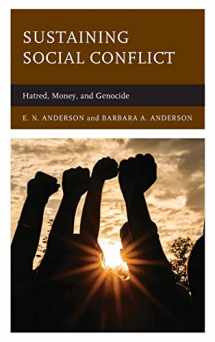
Sustaining Social Conflict: Hatred, Money, and Genocide
Book details
Summary
Description
This book examines the origins of genocide and mass murder in the everyday conflicts of ordinary people, exacerbated by special interests. We examine cases harming people simply because they are considered unworthy and undeserving—for instance, if they are dehumanized. We confine our attention to genocide, mass murder, large-scale killing motivated by hate or desire for gain, and fascism as an ideology since it usually advocates and leads to such killing. The book draws on social psychology, especially recent work on the psychology of prejudice. Much new information on the psychology of fear, hate, intolerance, and violence has appeared in recent years. The world has also learned more on the funding of dehumanization by giant corporations via “dark money,” and on the psychology of genocidal leaders. This allows us to construct a much more detailed back story of why people erupt into mass killing of minorities and vulnerable populations. We thus go on to deal with the whole “problem of evil” (or at least apparently irrational killing) in general, broadening the perspective to include politics, economics, and society at large. We draw on psychology, sociology, economics, political science, public health, anthropology, and biology in a uniquely cross-disciplinary work.


We would LOVE it if you could help us and other readers by reviewing the book
Book review



